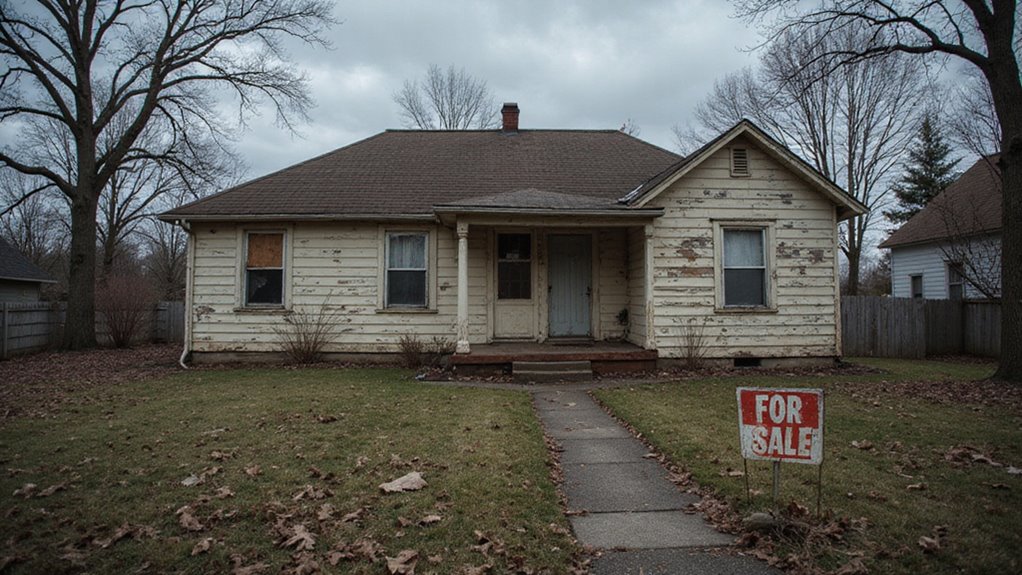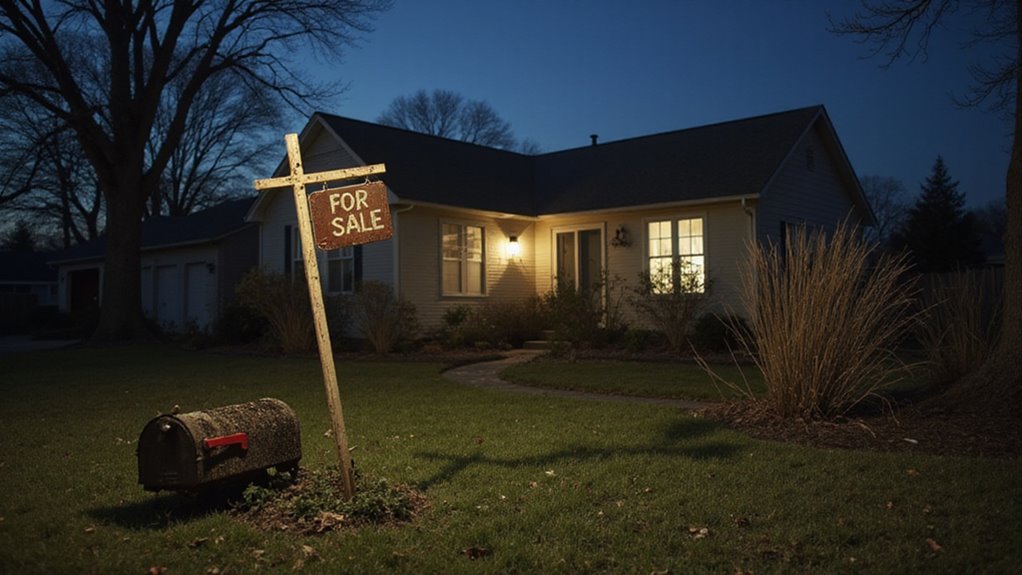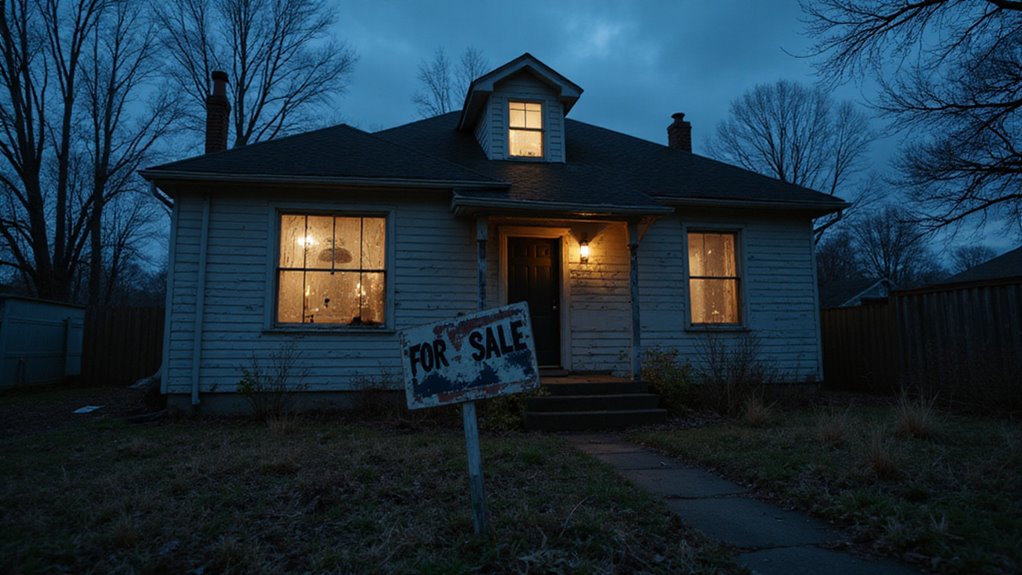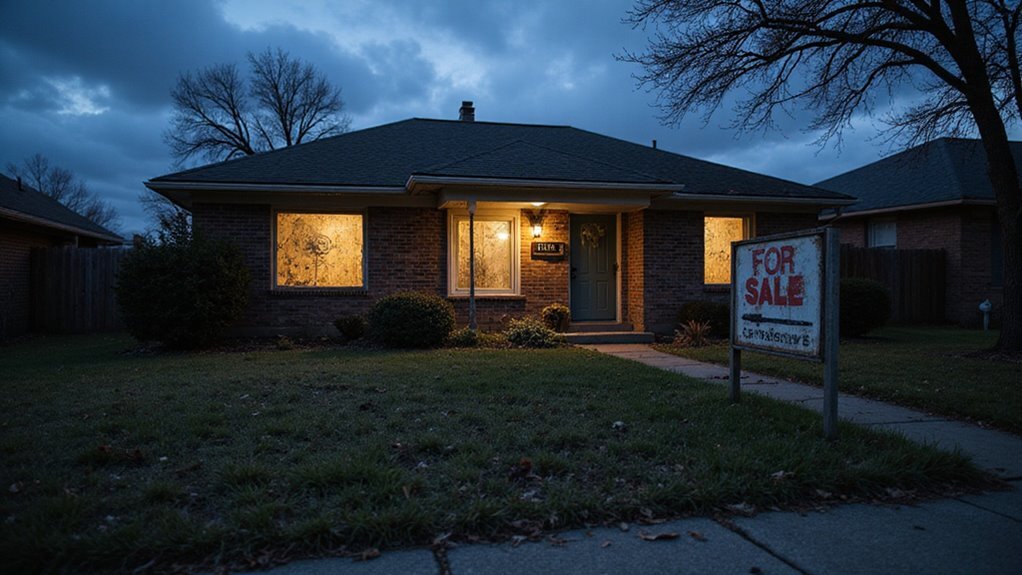Facing foreclosure can be stressful. You might wonder how long you have to sell your house before losing it. This situation demands quick action to avoid dire consequences.
The pressure builds as missed payments pile up. Time slips away, often leaving just 30 to 120 days to act. Delaying could mean losing your home for good. But there’s hope if you move fast.
You typically have 30 to 120 days to sell a house in foreclosure. Explore options like a quick sale or lender negotiation now. This blog will guide you through saving your home. Stick with us to find clear solutions.
Key Takeaways
- Foreclosure timelines vary, typically starting after 90 days of missed payments with a Notice of Default.
- Pre-foreclosure period ranges from 30 to 120 days, depending on state laws and lender policies.
- Selling is possible during pre-foreclosure before the auction, but time is limited by local regulations.
- Acting early in pre-foreclosure maximizes options to sell and avoid auction or credit damage.
- State laws and auction dates directly impact the exact time available to sell.
What is Foreclosure?

Foreclosure is a legal process where a lender takes a property when a homeowner misses mortgage payments. This action happens if you fail to pay as agreed. It protects lenders but can be tough for homeowners.
Foreclosure has existed for centuries, tied to old property laws. Back then, lenders used land to secure loans. If you defaulted, they could claim your property.
Foreclosure can seem unfair if you lose your home during hard times. Lenders say it’s needed to manage their risks. This creates a tricky balance between your rights and their security. Selling to an investment company can help avoid foreclosure by providing a fast cash offer to settle debts quickly.
How Does Foreclosure Work?
Foreclosure is a legal process when you can’t pay your mortgage. It allows the lender to take back the property. If you’re struggling financially, knowing this process is important.
First, you miss several mortgage payments and enter default. Then, the lender sends a Notice of Default to start legally. If you don’t act, the process moves forward.
You get a short redemption period to pay the debt. If you can settle it, you might save your home. Otherwise, the next step happens soon.
The lender auctions or sells the home if unresolved. They do this to recover their money. Stay aware and act fast to avoid losing your property. Selling to a cash buyer can provide quick funds to resolve foreclosure issues.
Pre-Foreclosure vs. Foreclosure: What’s the Difference?

Pre-foreclosure and foreclosure are different stages in losing a home, and understanding them helps you act wisely. Pre-foreclosure happens when you miss payments, and the lender sends a default notice. At this stage, you still own the home and can sell or negotiate.
Foreclosure is the legal step where the lender takes your home after missed payments. If solutions fail, the home may go to auction or you face eviction. This process can be stressful, so knowing your options is key.
Laws for foreclosure vary greatly between countries, affecting how the process unfolds. Cultural views also matter, as some societies see foreclosure as a major shame. If you’re aware of these differences, you can make better choices.
Being informed about these stages lets you take control of your situation. If you act early in pre-foreclosure, you might avoid losing your home. Always seek advice to protect your interests during this tough time. Additionally, be aware that a property lien can complicate the sale of your home during pre-foreclosure or foreclosure.
The Foreclosure Timeline Explained
The foreclosure timeline shows the steps in losing a home due to missed payments. It’s not a fast process and varies by state. If you’re facing this, knowing the stages helps you prepare.
First, missed payments start the process after 90 days of non-payment. Then, a Notice of Default arrives from the lender. This warns you about their plan to foreclose if unpaid.
If unresolved, the property moves to a public auction. Post-auction, eviction might happen if ownership changes. Be aware that delays could occur due to legal issues.
Future laws or rules might affect the timeline. If changes happen, they could delay or alter your situation. Stay informed to handle any surprises. Additionally, selling to cash buyers can offer a quick solution to avoid foreclosure.
Timeframe to Sell During Pre-Foreclosure

When you’re in the pre-foreclosure stage, you’ve typically got a window of 30 to 120 days before the lender moves to auction, depending on state laws and your specific situation. Selling during this period offers key opportunities, like avoiding a full foreclosure on your credit, but you’ll face challenges such as tight deadlines and potential underwater mortgages. Acting early isn’t just smart—it’s critical to maximizing your options and minimizing financial damage.
Typical Duration of Pre-Foreclosure Period
The pre-foreclosure period usually lasts between 30 to 120 days, based on location and lender rules. This time starts after missed payments and a notice of default is issued. If you act quickly, you can sell your house before full foreclosure.
Several factors can change this timeline. State laws might extend the pre-foreclosure period in some areas. Lenders could also provide different grace periods depending on their policies.
Local market demand plays a role too. If homes sell fast in your area, you might have better chances. Loan types, like government-backed ones, often allow more time.
You must move swiftly during this window. Delaying could mean losing the chance to sell. If unsure, seek advice to understand your options.
Selling During Pre-Foreclosure: Key Opportunities and Challenges
Selling during pre-foreclosure means you can still manage the sale before the bank takes over. This period offers chances to attract buyers with lower prices. If you price wisely, you might maximize your returns.
However, challenges can arise with tight deadlines and emotional stress. You must stay organized and make fast decisions. If stress builds, consider seeking help from a trusted advisor.
A real estate expert could guide you through offers and negotiations. They can save time in this urgent situation. If you act quickly, you may close a deal soon.
Marketing your property well is crucial to gain buyer interest. Ensure your home looks appealing to stand out. If presented right, you could secure a sale before foreclosure advances.
Why Acting Early is Crucial
Acting early in pre-foreclosure is vital to sell your home before the bank takes over. If you delay, you risk losing control and facing bigger losses. This step helps you manage stress and secure your future.
By moving fast, you gain important benefits for your situation. Early action lets you list your property with better chances of being seen. If you wait, buyers might miss your home entirely.
Negotiating better deals becomes easier when you start soon. With time on your side, you avoid rushed, low offers. This also lowers stress by reducing uncertainty in the process.
Planning for what’s next is simpler if you act now. Early steps give you space to arrange a smooth move. Don’t let days slip away in pre-foreclosure.
Every moment matters when facing this challenge. If you hesitate, options shrink and pressure grows. Act now to protect your interests.
Selling the House After Foreclosure Begins

If foreclosure has already started, you might wonder if it’s too late to sell your house, but options still exist. You can work directly with your lender to delay the auction, buying critical time to market the property. Additionally, consider a short sale as a viable alternative to avoid the full impact of foreclosure on your credit. Selling to a cash buyer can also provide a quick solution to halt the foreclosure process.
Is It Too Late to Sell?
If foreclosure proceedings have started, you can still sell your house. Acting quickly could help you find a buyer. The process depends on your state, but a window often exists before the final auction.
You must understand your timeline to make the right moves. Check how much time remains before the auction date. If time is short, every decision becomes urgent.
Pricing your home competitively is key to attracting offers. Set a fair price that draws buyers fast. If priced well, you might sell sooner.
Marketing your property widely can speed up the process. Use online platforms to reach more potential buyers. If marketed effectively, interest could grow quickly.
Consulting experts can guide you through this challenge. A real estate agent or attorney offers valuable advice. If you seek help, mistakes might be avoided.
Don’t wait, as delays could cost you dearly. Every moment matters in a foreclosure situation. If you act now, success is still possible.
Working with the Lender to Postpone Auction
Delaying a foreclosure auction starts with contacting your lender right away. Show them your plan to sell the house. If you have a listing or offers, they might agree to wait.
Lenders often dislike the high costs of foreclosure. They could postpone the auction if you prove your efforts. Persistence is key to gaining extra time.
Negotiating with your lender can help pause the process. Propose a short forbearance or a repayment plan quickly. Provide documents to show you’re serious about selling.
Act fast to avoid losing your chance. Clear communication can secure more time for the sale. If delays happen, your options might shrink.
Short Sale as a Foreclosure Alternative
A short sale can help you avoid the harsh effects of foreclosure. If your mortgage exceeds your home’s value, this option might work. It reduces credit damage compared to losing your home.
Lenders must approve the short sale before you proceed. Without their consent, foreclosure could still happen. Make sure you act swiftly to start the process.
Buyers need to meet the lender’s strict financial rules. If they don’t qualify, the deal won’t go through. Check their credentials early to avoid delays.
Be aware that forgiven debt might count as taxable income. If unsure, consult a tax professional for guidance. This step can prevent unexpected costs.
Time is critical in a short sale situation. If you delay, foreclosure proceedings won’t stop on their own. Stay proactive to secure this escape route.
Strategies to Sell a House in Foreclosure Fast

If you’re facing foreclosure, you can speed up the sale of your house by partnering with a real estate agent who specializes in these unique situations. Consider reaching out to cash buyers or “We Buy Houses” companies for a swift, no-hassle transaction. Also, make sure you prepare your home effectively to attract buyers and close the deal fast. For a quick solution, contact services that offer fast cash offers to expedite the process.
Working with a Real Estate Agent Specializing in Foreclosures
Teaming up with a foreclosure-specialized real estate agent can transform your urgent house-selling process. Their deep knowledge of distressed properties ensures a faster, smoother journey. If you choose wisely, their skills can save you time and stress.
Focus on finding an agent with solid experience in foreclosure sales. Check their past results for a proven track record. If they’ve handled similar cases, you’re in safer hands.
Here are simple tips to collaborate effectively with your agent. First, tell them your timeline and goals clearly from the start. If urgency matters, they’ll prioritize your needs.
Next, trust their pricing advice based on market trends. A competitive price can attract buyers quickly. If you agree, sales might happen sooner.
Also, share all details about your property honestly. Full disclosure prevents unexpected delays during the process. If issues arise, they can address them early.
Lastly, respond fast to offers or agent requests. Quick replies keep the sale moving forward. If you stay engaged, success is more likely.
With the right agent, a swift and smooth sale becomes possible. Their guidance can make a big difference. If you follow these steps, results will improve.
Cash Buyers and “We Buy Houses” Companies
Selling a foreclosed house fast is possible with cash buyers. These investors close deals in just a few days. If you need speed, they could be your best option.
Cash buyers and “We Buy Houses” companies often buy properties as-is. You won’t need to fix anything before selling. If repairs are a concern, this saves time.
Look for them through online ads or local listings. Check their reviews to confirm they’re trustworthy. If you spot bad feedback, avoid potential scams.
Preparing the Home for a Quick Sale
Preparing your foreclosed home for a quick sale starts with small, effective updates. Focus on key areas to attract buyers fast. If you act now, you can boost interest significantly.
First, enhance Curb Appeal to create a welcoming look. Paint the exterior or tidy the lawn for impact. If the outside shines, buyers will want to see more.
Next, prioritize Home Staging inside for a lasting impression. Declutter spaces and remove personal items completely. If buyers feel at home, they’re more likely to offer.
Follow these steps to maximize your home’s charm. Clean every room until it sparkles with care. If it’s spotless, it shows the property is valued.
Address minor fixes to avoid buyer concerns. Patch up holes and stop any leaks promptly. If issues linger, they might scare off potential offers.
Finally, keep décor simple with neutral tones. Use soft colors to appeal to most tastes. If the style is broad, more people will connect.
Legal and Financial Considerations
As you navigate selling a house in foreclosure, understand that your rights as a homeowner play a critical role in the process. You’ll also need to account for state laws, which vary widely and can significantly affect the timeline of the sale. Finally, if you’re considering bankruptcy, know that it can further complicate and delay the sale, so plan accordingly. Additionally, be aware that similar to inherited property, state-specific regulations may impose unique constraints or waiting periods on the sale process.
Rights of the Homeowner in Foreclosure
Facing foreclosure is tough, but homeowners have rights to protect them. These rights help you manage the process better. If you know them, you can act with confidence.
You are entitled to clear information during foreclosure. The law requires a formal notice before any action starts. If you don’t get this, you can raise concerns.
You also have the right to fix your mortgage. If possible, pay overdue amounts before the deadline to reinstate it. This can stop the foreclosure process.
Challenging errors in the process is another option. If mistakes happen, you can file appeals against eviction. This ensures fair treatment under the law.
Lastly, you can defend against unfair practices. If fraud or deceptive lending caused your issue, raise a claim. This right protects you from wrongdoing.
Role of State Laws and Differences in Timelines
State laws are key in shaping the foreclosure process for homeowners. They decide how much time you have to sell your house. If you’re facing foreclosure, understanding these laws is crucial.
Timelines for foreclosure vary widely depending on your state. Some states give only a few weeks after notice to act. Others may allow months before the auction happens.
You must look into your state’s specific foreclosure rules. Check if the process is judicial or non-judicial for clarity. If unsure, consult a legal expert to protect your rights.
Don’t assume all states have the same foreclosure timelines. Local regulations can differ, affecting your window to respond. Research thoroughly to manage the situation well.
How Bankruptcy Impacts the Sale Timeline
Filing for bankruptcy directly impacts the timeline of selling a house in foreclosure. It triggers an automatic stay that stops foreclosure actions. This pause can give you time to manage your finances.
The stay creates a shift in your sale timeline. If you file, expect delays in the selling process. Court approval becomes necessary before any sale can proceed.
Different bankruptcy types also affect the timeline. Chapter 7 might involve selling assets, while Chapter 13 focuses on restructuring debts. Each type can change how long the process takes.
Court approval often adds weeks or even months to the sale. If creditors negotiate terms, this can further slow things down. Plan ahead to handle these delays.
An automatic stay temporarily extends your selling window. If you strategize well, you can navigate these challenges. Always stay informed about your bankruptcy case status.
How to Avoid Foreclosure Altogether
If you’re facing the threat of foreclosure, take immediate action by exploring loan modification programs that can adjust your mortgage terms to make payments more manageable. Don’t overlook forbearance or repayment plans, as these options can temporarily reduce or pause payments while you regain financial stability. Act quickly and seek professional help from a housing counselor or attorney to guide you through these critical steps and protect your home.
Loan Modification Programs
Loan modification programs offer a helpful solution if foreclosure looms. They adjust mortgage terms to make payments affordable. This could save your home from being lost.
To qualify, check if you meet your lender’s specific criteria. Gather all needed documents like income proof quickly. If eligible, you might get better loan terms.
Interest rates could drop with a modification plan. This often lowers your monthly payment burden. Ensure you understand the new terms clearly.
Stay in contact with your lender for updates. Clear communication helps avoid any misunderstandings. If delayed, you risk missing this vital chance.
Act fast to secure this support option. Timing is key to preventing home loss. If unsure, ask your lender for guidance.
Forbearance and Repayment Plans
Forbearance helps you pause or lower mortgage payments during tough times. It gives you time to recover financially if you’re struggling. Contact your lender quickly to discuss suitable terms.
Repayment plans let you catch up on missed payments gradually. They add small amounts to your regular monthly payment. If you act fast, lenders may agree to avoid foreclosure.
Take control by reaching out to your lender now. Show commitment to paying back what you owe. If you delay, protecting your home becomes harder.
Seeking Professional Help Early On
Don’t wait for foreclosure to act. Early help from experts can stop financial trouble before it grows. If you seek guidance now, you can protect your home.
Housing counselors offer solutions tailored to your needs. They can help with mortgage struggles effectively. If you reach out early, you might avoid bigger issues.
Here’s how to begin the process. First, contact a HUD-approved counselor for free support. If needed, discuss loan modifications with them.
Next, explore repayment plans with your lender. These plans can help stabilize your finances. If unsure, ask for clarity on options.
Finally, seek legal advice to know your rights. Professionals can explain your obligations clearly. If you act fast, you can save your home.
You have the power to change your situation. Don’t delay in getting professional help. If you wait, problems could worsen.
Conclusion
In conclusion, selling a house in foreclosure requires quick action. If you act within the 30 to 120-day pre-foreclosure window, you can avoid major setbacks. Making informed decisions helps protect your credit and future.
If you’re struggling, consider selling to cash buyers. We buy houses for cash, offering a fast solution. This option can help you move forward without delay.
Should you need assistance, we’re here to help at Limitless Homes of KC. Contact us today for support. Let us guide you through this challenging time.

